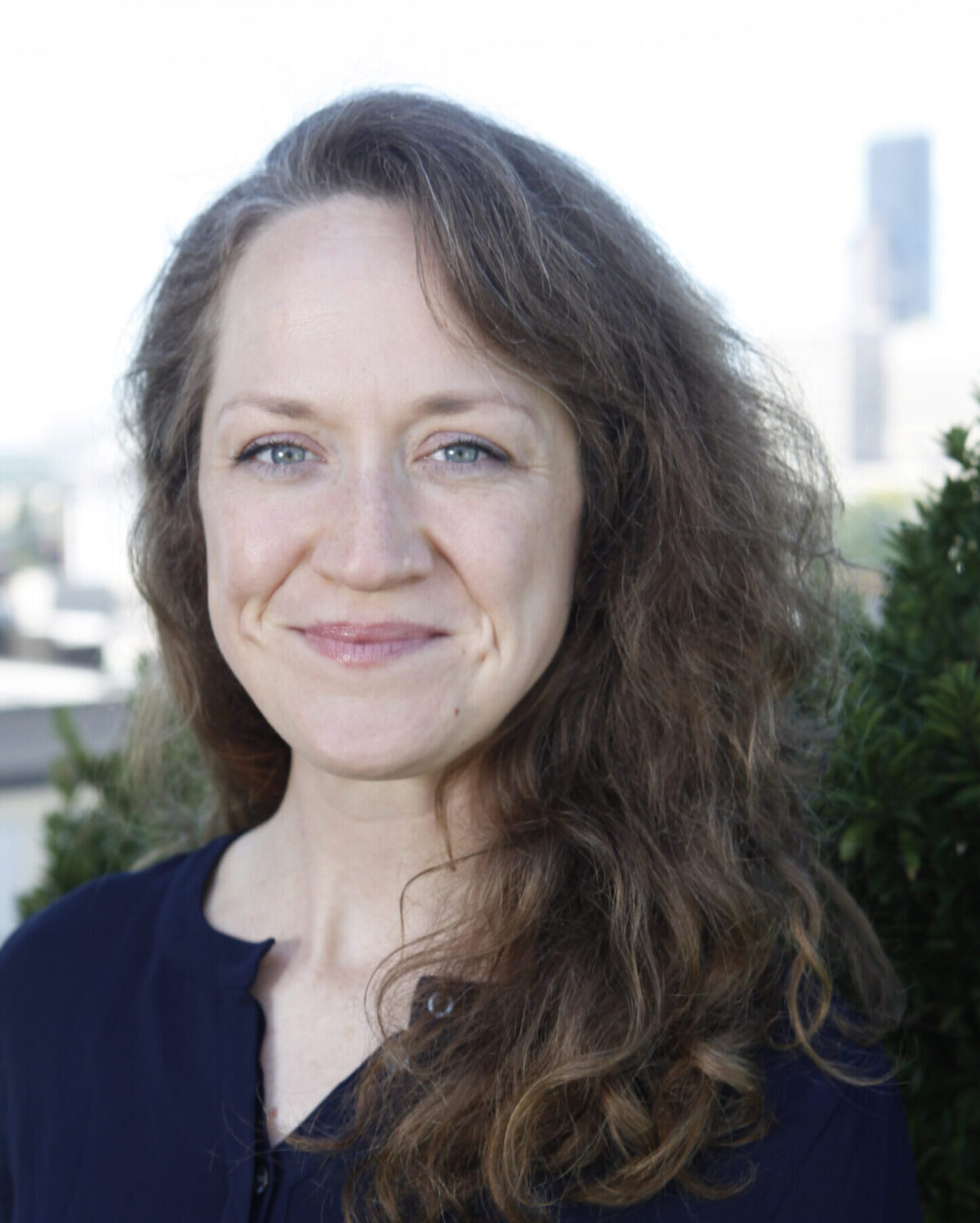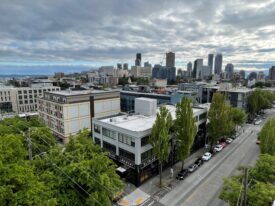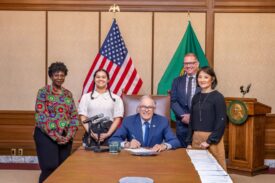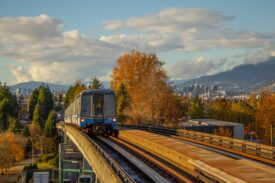Serena
I cannot. contain. my excitement. for our event with Chris Jordan next week! He will doubtless rock all your socks off, and at a ticket price of just $5, he can rock all your friends’ socks off, too. Not convinced? Check out this post from earlier this week and the trailer for his film, Midway, to be released later this year:
Bonus materials: Just prior to Chris’s event, local author Charles Wolfe will discuss his new book, Urbanism Without Effort, just downstairs starting at 6 p.m. In it, he argues that to create vibrant, sustainable cities, we must understand what happens naturally when people congregate in cities before applying government policies or initiatives.
Alan
As a borderline introvert who directs an organization that tends to attract a lot of thoughtful introverts, I appreciated this how-to infographic.
More on garage insanity: When Steve Jobs started Apple in his parents’ Silicon Valley garage, he was breaking the local land-use laws on off-street parking spaces.
Anna
Here’s a photo essay to melt your heart and whet your appetite: grandmothers around the world pictured with local cuisine they’ve prepared. (Oh! Those stuffed aubergines from Turkey! Time for lunch!)
From the “this made me weep openly at my desk” department, check out this amazing kid from San Antonio, first singing the US National Anthem beautifully (I rarely feel overwhelmed by patriotism when I hear the song, but this did the trick), and then beautifully and gracefully responding to the racist reactions his performance sparked, in a TV interview and on Twitter: “Please do not pay attention to the negative people. I am an American living the American Dream. This is part of the American life.”
Finally, don’t miss this interview with Matt Taibbi who always knocks it out of the park when it comes to the destructive system failures regular Americans are facing. (“Let’s not underestimate how powerful the corporate capitalist model still is. They still have a massive stranglehold on the economy. They have an enormous amount of money. They still have virtually complete control over both houses of Congress and the presidential election process. They still have access to both parties… But I think ultimately, down the line, yeah, people want to have control over their economic futures. And it is definitely the way to go, it’s just a question of how to get there.”)
Clark
If you missed it earlier this week, I strongly urge you to check out an article from The Atlantic Cities arguing that transit may not be all that important to “transit-oriented development.” That may sound counter-intuitive, but you should read the article. In a nutshell: people who live in rail TOD neighborhoods near lots of amenities really do drive less, but not necessarily because they’ve substituted rail trips for car trips! Research from UC Berkeley found that the characteristics of a neighborhood—compact housing, a good mix of stores and services, limited free parking, decent bus service—certainly affect car usage. But once you control for neighborhood features, being near a rail station doesn’t really have much effect on driving!
Having lived car-free (or car-lite) in compact neighborhoods with no convenient rail access, this makes perfect sense to me. And if the research is right, I find it heartening, since it means that neighborhood design matters everywhere, not just around rail stops.
Eric
This past week something happened in Seattle’s mayoral race that made me wonder, once again, whether an awful lot of my city’s politics can be explained by a sort of generational divide. At a downtown forum, candidate Charlie Staadecker, 69, argued, “If you currently feel safe and happy in the city and feel it’s going in the right direction, then by all means vote for one of the career politicians that’s running right now.”
I’d be awfully curious to see polling on that question. Until then, I’d be willing to bet you a chunk of change that folks my age and younger overwhelmingly feel safe and happy in the city, and that it’s going in the right direction. (Separately, I’d argue that the city actually is safer than it’s been in a long, long time; but that’s another matter.) Anyone disagree?
Filmmakers in Montana are using Kickstarter to take on coal exports. Momenta takes an explicitly environmental view of the issue. Things of Intrinsic Worth focuses on the McRae’s, a ranching family battling against an export-oriented railroad extension and the toxic ash ponds from the power plant that fuels Puget Sound Energy’s electricity.
I also stumbled upon this intriguing 2011 film, Empty Quarter, about southeast Oregon. I’ve only skirted the edges of that region—Hart Mountain, French Glenn, and Burns—but I’d very much like to explore it in depth someday.
The Motley Fool takes note of coal mining companies pouring cash into lobbying. If that worries you—and it should—then you can buck up by taking a gander at those firms’ stock prices. Almost all of them are in the tank.
My friend Chris Busch takes a hard look at the limits of the regulations governing fracking and unconventional oil drilling in California. It’s timely stuff given that the Golden State could well play host to a Bakken-like oil boom in the coming years.
And to close, Yglesias makes an interesting case for doing away with wedding registries.








